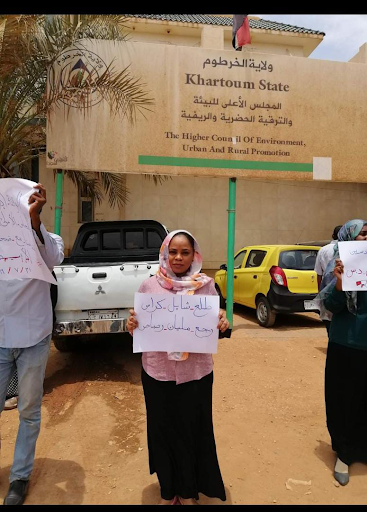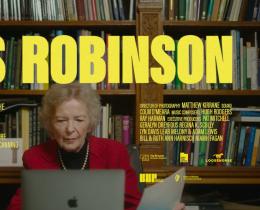Sudan is one of the richest countries when it comes to natural resources, and Mona Abulgasim Seifeldin Samine of Karthoum says she is determined to protect them—even in the face of violent conflict within her country.
Mona is an environmental science specialist who served the government for 10 years. She has been responsible for the environment and waste management at the governor's office in Khartoum, and she previously served the Sudanese government as environmental inspector. Mona also works with the Sudan National Action for Climate Empowerment (ACE) committee, an effort by the United Nations Framework Convention on Climate Change (UNFCCC) to get civil society involved in climate action.
Mona usually attends the UN climate conferences and participates in climate process as part of a Sudanese governmental delegation, but due to the political instability (the war in Sudan), it is unclear whether or how Sudan will form a group for the next climate conference. Omega, which has obtained UNFCCC accreditation, is committed to supporting her attendance in order to bolster her work.
Omega has offered to include her in its delegation to COP28—the 28th UN Climate Change conference, held this year in Dubai—if a Sudanese delegation is not possible this year. The Omega Center for Sustainable Living (OCSL) is also raising funds to help pay for Mona’s travel costs and to support her ongoing work.
In a recent conversation, Mona explained why protecting Sudan’s rich natural resources is critically important to stabilizing the country.
“There are a lot of activities that are not sustainable, such as gold mining and mining of other rich minerals,” said Mona. “There are not solid regulations in place here related to the environment. For example, we don’t have air and water quality standards or regulations, and this can make it difficult to stop the private sector [mining companies] and the government, legally.”
She said mining and other industrial and development projects in rural areas, or poorer places, affect flora, fauna, and natural resources. She also added that it is affecting people's health.
"Socioeconomic studies, conducted before projects are developed, are crucial," she said. "It's about human rights."






